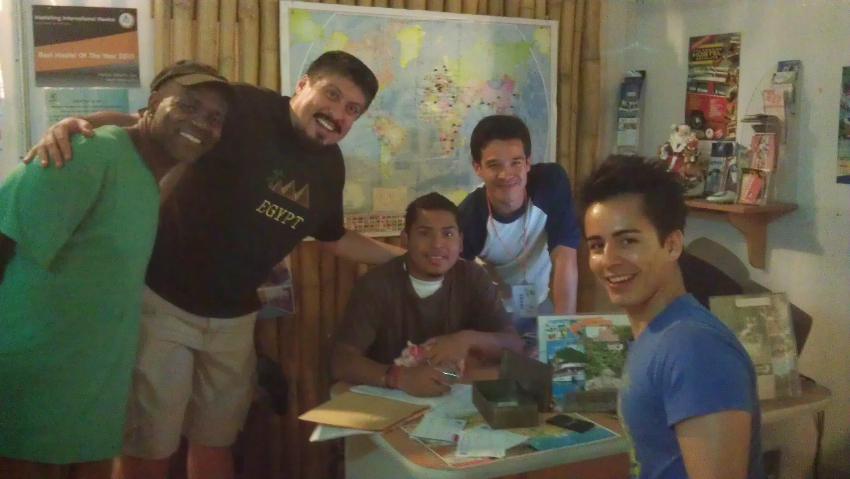Staying in hostels has been its own travel experience, and the places vary greatly. I’ve had a room with as few as four beds in it and one with as many as 20. Most are single sex, but one morning I opened my eyes to see the silhouette of a statuesque blond brushing her as she peered out the window upon a Paris sunrise.
Sometimes you share a single sink in a room among a dozen people; other times it is a couple of sinks and a shower to be shared among four roommates. The toilets are always mixed gender and located as close to the room as across the hall and as far away as two flights down.
Hostel rooms are usually sterile, designed only for sleeping, and surprisingly, everyone respects the quiet hours. The best room design I’ve seen is one place where the lockers to store your things were located outside the sleeping room so that you never disturbed others as you fussed through your things, something often done when trying to live out of a backpack for a couple months. Really, the only noise that consistently disturbs your sleep is the snoring of one of your roommates. In every hostel room I’ve stayed, there seems to be a designated snorer, and it’s never light snoring. Usually it’s the kind that goes on all night and sounds like a child proudly demonstrating to his parents for the first time how a pig sounds.
When you check into a hostel, in addition to your room key, you are given a set of sheets and a pillow case. Only once was I given a fitted sheet. Usually you are expected to make your bed using two flat sheets and a thin wool blanket, which you’ll typically find folded on the end of your single bed along with a pillow, that for its size, you might mistake for a pin cushion.
The experience of first entering your room can differ greatly. If you’re lucky, you’re the first person to occupy the room, and you can choose from any bed and quickly plug your phone or camera charger into the one outlet in the room. If you are unfortunate enough to check in later in the day, you’ll likely be sleeping on a top bunk and feel like an immigrant to a foreign country already populated by those who’ve had the advantage of showing up just before you.
The facilities vary, but most include “breakfast”, something that has been proudly declared from every receptionist who’s checked me in but what really amounts to coffee, tea, corn flakes, and a piece of stale bread. Honestly, the first time I was told about breakfast being included, I had visions of eggs, bacon, and waffles based on the enthusiasm with which the receptionist told me that breakfast was included.
In the best of circumstances, your stay includes access to a kitchen where you can keep and prepare your food whenever you like. In the worst case, you only have access to the kitchen and your food during narrowly defined hours, or you must obtain a token (for $1.50) in order to operate the stove for 20 minutes. My favorite extorted fee, however, was a six dollar charge to rent sheets. It was not included in the cost of the hostel, and you could not bring your own sheets. It was simply a ploy to make the advertised cost of the hostel appear lower than the others in town.
The common rooms differ greatly from a simple reception area to a bar and lounge, but this is really the highlight of the hostelling experience where you can hear languages from all over the world. This trip I have heard French, German, Dutch, Danish, Russian, Spanish, Belgian, Israeli, and several dialects of English (from Australian to Scottish).
Mealtime and evening is always the best time at the hostel. You get to meet fellow travelers, maybe speak in your own tongue for the first time all day. Most conversations begin with what you did that day and where you’re from. It’s also a great opportunity to get recommendations on where to go and how to make the most of your visit.
Really, this is why I decided to stay in hostels instead of hotels. They are a place to satisfy my need to communicate in a country where I do not speak the language and to figure out how to unravel some of the world’s mysteries, like why the French eat so much and stay thin or how the Greek ferry system works.

